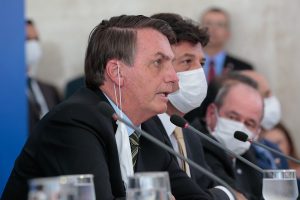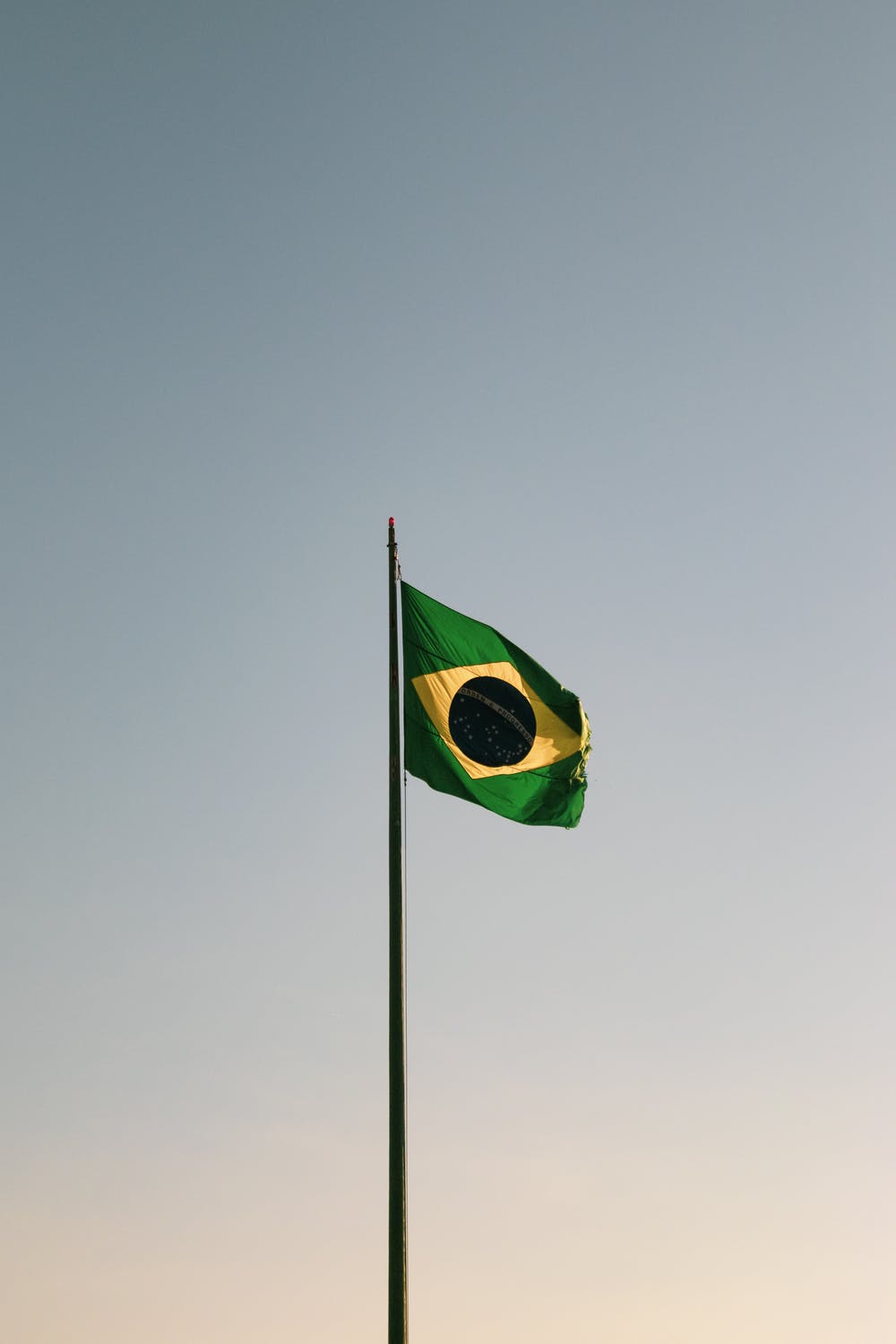Brazil, a country where Coronavirus became a secondary issue in times of a global pandemic
Instead of just being worried about the numbers of cases, Brazilians find themselves completely lost right in the middle of a world crisis. As the number of deaths related to the Coronavirus rises, Brazilians are divided, don’t know whose instructions to follow and, in the meantime, decide to protest according to their political ideals instead of focusing their efforts on fighting the pandemic.
The catastrophic scenario in Brazil does not only rely on the pandemic, which has already killed nearly 250 thousand people worldwide, but also on the several political crises created by the government of far-right president Jair Bolsonaro after the crisis started. After completely dismissing the seriousness of the disease and comparing the Coronavirus to a “little flu” on national television, Bolsonaro attended protests and lost two of the three most popular ministers in his administration. Luiz Henrique Mandetta, the former health minister with 76% approval rates by Brazilians was fired because of his defense of social isolation policies and Sérgio Moro, referred to as a “superminister” asked to leave after revealing several corruption and self-interest scandals coming from president Bolsonaro himself.
In this context of confusion and uncertainty, the population decided to protest. The country has already almost 60,000 registered cases and 4,000 deaths related to COVID-19, and still, some authorities decide not to take the easily spread virus seriously enough. Brazil, however, remains one of the countries with the least number of tests available and this is a serious concern for doctors and researchers in the country. “We definitely have a higher number of cases and deaths related to COVID-19, but the low number of available tests makes it only possible to test pregnant women, serious cases and health professionals, so there is underreporting”, Ana Leticia Marsillac, a doctor working on the front line of 3 hospitals in Rio de Janeiro explains.
Therefore, people who would rather take protests to the streets have found a way to protest from their houses in times of social isolation. The so-called “panelaços” or pan and pot banging from people’s balconies in several cities throughout Brazil became a popular practice right before former president Dilma Rousseff was impeached in the country in 2016.
This way, Brazilians who don’t agree with the president’s policies and negligence towards the virus took their dissatisfactions to their balconies and decided to bang pots and pans during several speeches delivered by President Bolsonaro.

Photo by Palácio do Planalto
“Bolsonaro wants the economy to open because he knows that the economic crisis was a crucial aspect who got Dilma Rousseff to get impeached. Two of the pillars and main focuses of his presidential campaign were the economy and the fight against corruption. He knows that the country is going to be hit hard by the pandemic.” Tanguy Baghdadi, professor of international politics at Brazilian university Veiga de Almeida tells me.” However, what needs to be clear is that is not the quarantine that is going to be harmful for the economy, but COVID-19 itself- and worldwide,” he adds.
Therefore, the ones who support the president claim to have the country’s best interest at heart and defend the reopening of businesses and the isolation of risk groups. Bolsonaro declared in an interview with journalist José Luiz Datena on March 28 that “(…) unfortunately, some people are going to die, but that happens, and we are going to have to move on. “Also, in another interview on 28 April, when asked about the rising number of deaths because of the virus, he publicly responded, “So what? I’m sorry. What do you want me to do?”
In this context, he defends social isolation only in cases of high-risk patients, which means a “vertical” kind of isolation. This argument, which bases itself in avoiding an even harder economic crisis in the future, motivated protests in big cities, such as São Paulo, Rio de Janeiro and Brasília. The first one happened on March 15th even after Jair Bolsonaro asked people to cancel the manifestations. During the protest, however, he decided to take part and ended up joining in Brasília. Later on, other pro Bolsonaro protests took over the streets of São Paulo on April 11th and blocked the way for ambulances to reach hospitals. Others happened a week later, whereby the most striking was the one where protesters asked for the return of the deadly military dictatorship in the country – which the president attended.
This dark period in the history of Brazil killed at least 434 people and tortured another 20,000 according to Human Rights Watch. Protesters, with president Jair Bolsonaro’s support apparently decided to ignore this fact (and the pandemic) and asked for the closing of the country’s Congress and Supreme Court.
Dr. Ana Leticia Marsillac adds that it is important to follow the World Health Organization’s recommendations. “Some people are being careful, but others are living their lives as if nothing is going on,” Marsillac explains. “It is extremely important for people not to agglomerate and to stay at home so that our health system does not collapse. There are a lot of people who don’t show any symptoms, but who can transmit the disease.”
In the meantime, while other leaders decided to follow the rest of the world’s steps and stay at home, Brazil’s foreign minister, Ernesto Araújo, openly stated on his personal blog that the virus is actually a communist plan and called it the “Comunavirus.” According to him, by centralizing the power in the hands of an international organization, we create a world without nations, liberties and end up creating a global society, which will build a communist solidarity global net.
“People who support the protests happening and try to ignore the seriousness of this issue really do believe that the Coronavirus is part of a conspiracy plan to take down Jair Bolsonaro,” Baghdadi argues. “They are part of a more ideological ally of the government, which believes that by preventing people from going out, you are actually harming their right to come and go- even in times of the pandemic, when we know agglomerations are not indicated. Moreover, it is very difficult to convince people to stay at home and change their routines”.
In this scenario of ideological division and polarization, other part of the Brazilian society decided to take a stand and found another way to protest. After Justice Minister Moro’s resignation and several accusations against the president, political forces also decided to ask for Bolsonaro’s impeachment. There are already 28 impeachment requests circulating in the Deputy chamber. In just two days, three new requests have been registered.
“Political opinions and protests are a very important part of democratic societies and therefore it is important for people to manifest their opinions- even in times of pandemic. However, it is also important to obey and respect authorities”. Baghdadi adds, “My main concern, however, is that, because of the current political crisis, Brazil is the only country in the world where the pandemic has become a secondary issue and reason to worry.”

